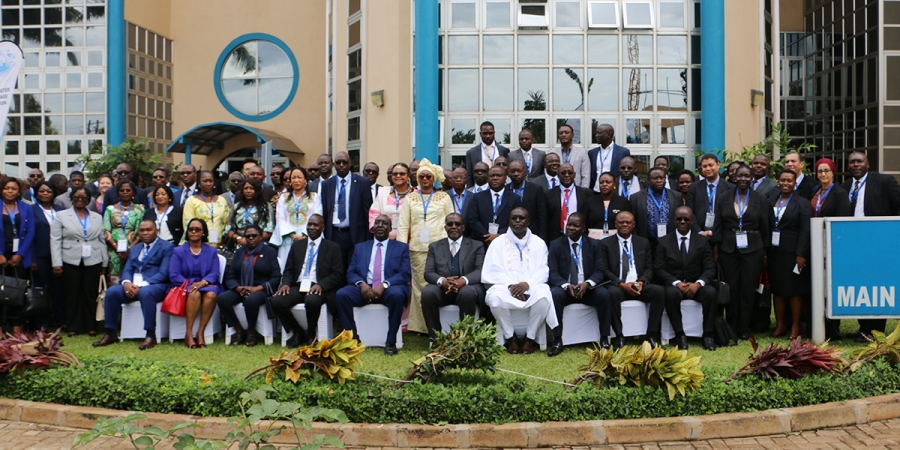"The relevance of the circular economy in accelerating access to water and sanitation for all in Africa” is the theme under which AfWA STC’s 83rd sessions will be held from November 11 to 14, 2019 in Kampala – UGANDA.
Presided over by Dr. Chris EBAL, the board chairman of NWSC of National Water and Sewerage Corporation, the opening ceremony featured a series of messages related to the theme of the meeting. First, Eng. AMAYO Johnson, on behalf of Dr. Eng. Silver MUGISHA, NWSC Managing Director, thanked AfWA for choosing this theme in the sense that "we live in an environment where resources are scarce in quantity and quality while the population is growing. The use of the circular economy becomes an alternative because it emphasizes recovery and recycling" and will make resources available”.
For Mr. Sylvain USHER, AfWA’s Executive Director, "The relevance of the circular economy for access to clean water and sanitation for all in Africa." The circular economy is an opportunity for renewal, growth and stability, it is a model of the future that we must seize to win our fight for access to water and sanitation in Africa.
In his turn, Dr. Papa SAMBA, President of STC said, while many sustainable development models revolve around the concept of "doing more with less", the circular economy includes the notion of recovery. Wastewater is now considered, in agricultural use, as waste that can be reused with the many nutrients it contains. We should also consider how to improve water cycle management by securing collection and treatment facilities and infrastructure; limiting or even reducing pollution sources to zero; and controlling urban, industrial and agricultural water runoff by combating macro and micro waste on the coast and at sea. In a spirit of global efficiency and circular economy, it is logical that wastewater recovery should complement the initial tasks of sanitation. Regarding sanitation in particular, it may be necessary to increase the initiatives already under way in the field of non-collective sanitation: Collect, transport, treat, recycle and recover by-products. Lastly,
Dr. Chris EBAL, the board chairman of NWSC said that “People are aware that water is a human right that cannot be discussed. “The Relevance of Circular Economy in achieving access to safe water and sanitation for all in Africa”, is chosen as a topical issue that transcends the African continent and is suited to the current world-wide challenge of achieving the SDGs. It is for that reason that we in Uganda chose the slogan “water for all”, reflecting our desire to see that more citizens have access to improved services”.
It should be noted that during the opening ceremony, Uganda's water and sanitation sector was presented to delegates.

 English
English  Français
Français 
